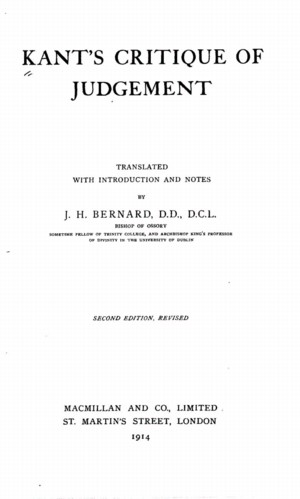
The Critique of Judgement
- Immanuel Kant (author)
- J.H. Bernard (translator)
One of Kant’s major works of philosophy which were designed to place the discipline on a sound rational footing. This volume deals with aesthetic and teleological questions.

One of Kant’s major works of philosophy which were designed to place the discipline on a sound rational footing. This volume deals with aesthetic and teleological questions.